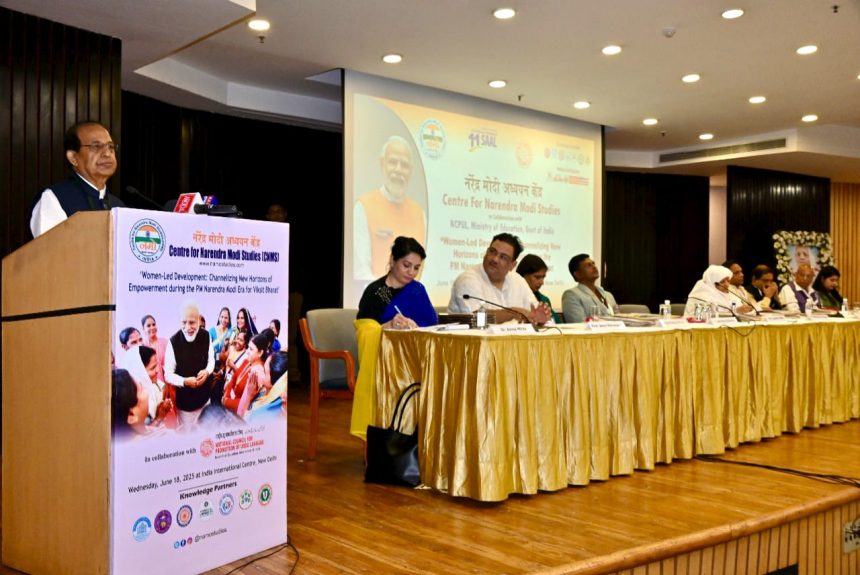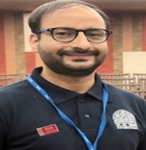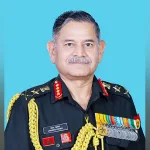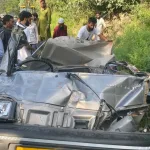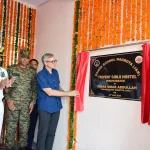New Delhi, June 22: The Technical session of the National Conclave on “Women-Led Development: Channelizing New Horizons of Empowerment during the PM Narendra Modi Era for Viksit Bharat”, organized by the Centre for Narendra Modi Studies (CNMS) in collaboration with NCPUL, brought powerful insights from renowned educators, policymakers, and thought leaders.
Prof. Jagdish Mukhi, Former Governor of Assam and Chief Guest of the session, focused on the government’s landmark decision for women’s representation. “Reservation for women inside Parliament and state assemblies has been a long-awaited promise. For 30 years, many governments brought bills, but none were passed. There was no political will. But today, under the leadership of Prime Minister Modi, this has become possible. For the first time, we can proudly say that 33% reservation for women is a reality. Modiji hai toh mumkin hai.”
Prof. Alok Chakrawal, Vice Chancellor of Guru Ghasidas Vishwavidyalaya, Bilaspur, and Principal Guest, underlined the irreplaceable contribution of women to national progress. “If women did not exist, there would be no development. Women actively participate in building our nation. The question is not whether they contribute, but how much credit we are willing to give them. A woman, once she commits, stands by someone till the last breath.” He extended heartfelt appreciation to CNMS, saying, “I congratulate Chairman Prof. Jasim Mohammad and the Centre for Narendra Modi Studies for their excellent work.”
Dr. Pankaj Mittal, Secretary General of the Association of Indian Universities and Principal Guest of the session, emphasized the unique role of women in society. She said, “We women are natural multitaskers — this skill is our strength and it comes to us naturally. While the government is doing great work, it is important to ask: what are we women doing to change the way we think? We are already empowered. The day we truly recognize our own strength, that will be the moment we are truly empowered.”
Prof. Madan Mohan Goel, Former Vice-Chancellor and Visiting Professor at IIAS, Shimla, gave a conceptual call for disciplined development. “If we want to build a truly Viksit Bharat, we need discipline, dedication, and devotion across all levels—from consumers to producers, from policymakers to traders. Everyone is a stakeholder,”.
Bringing in a policy-driven perspective, Prof. K. G. Suresh, Director of the India Habitat Centre, pointed out how women have always been at the heart of public policy during the Modi era. “The Open Defecation Free (ODF) initiative has had a massive impact on women. Earlier, the lack of toilets forced many girls to drop out of school. Thanks to ODF, we now have separate toilets for girls, and the dropout rate has fallen sharply.” He also highlighted how daughters like Sofia Qureshi and Vomika Singh took charge in difficult times, becoming symbols of strength and resilience. “When war was forced upon us, it was our daughters who stood at the frontlines. These young women are not just warriors—they are icons of India’s power.”
Ms. Mridula Tripathi, CEO of Uni Kaushal, Mumbai, and Guest of Honour, addressed the audience with clarity and emotion. She remarked, “Sort out the battles at home first. Win the battles inside your house, and then you will win every battle in life. Whatever you are doing—do it with your full heart. Own your decisions, be proud of them, and be proud of yourself.”
The session was chaired by Rajmata Ambica Ji Khirbhawani, a respected spiritual leader. In her closing message, she said, “Just like the sun is one, the moon is one, the earth is one, and the sky is one, we too must be one. Why should we divide ourselves? We must walk together in unity. That is my blessing for all of you.”
The session proved to be a thought-provoking and emotionally powerful part of the seminar, aligning closely with the vision of Prime Minister Narendra Modi’s call for women-led development and a self-reliant India. Each speaker brought a unique perspective that not only celebrated women’s role in the country’s growth but also called for collective effort in building a truly empowered and inclusive Bharat


